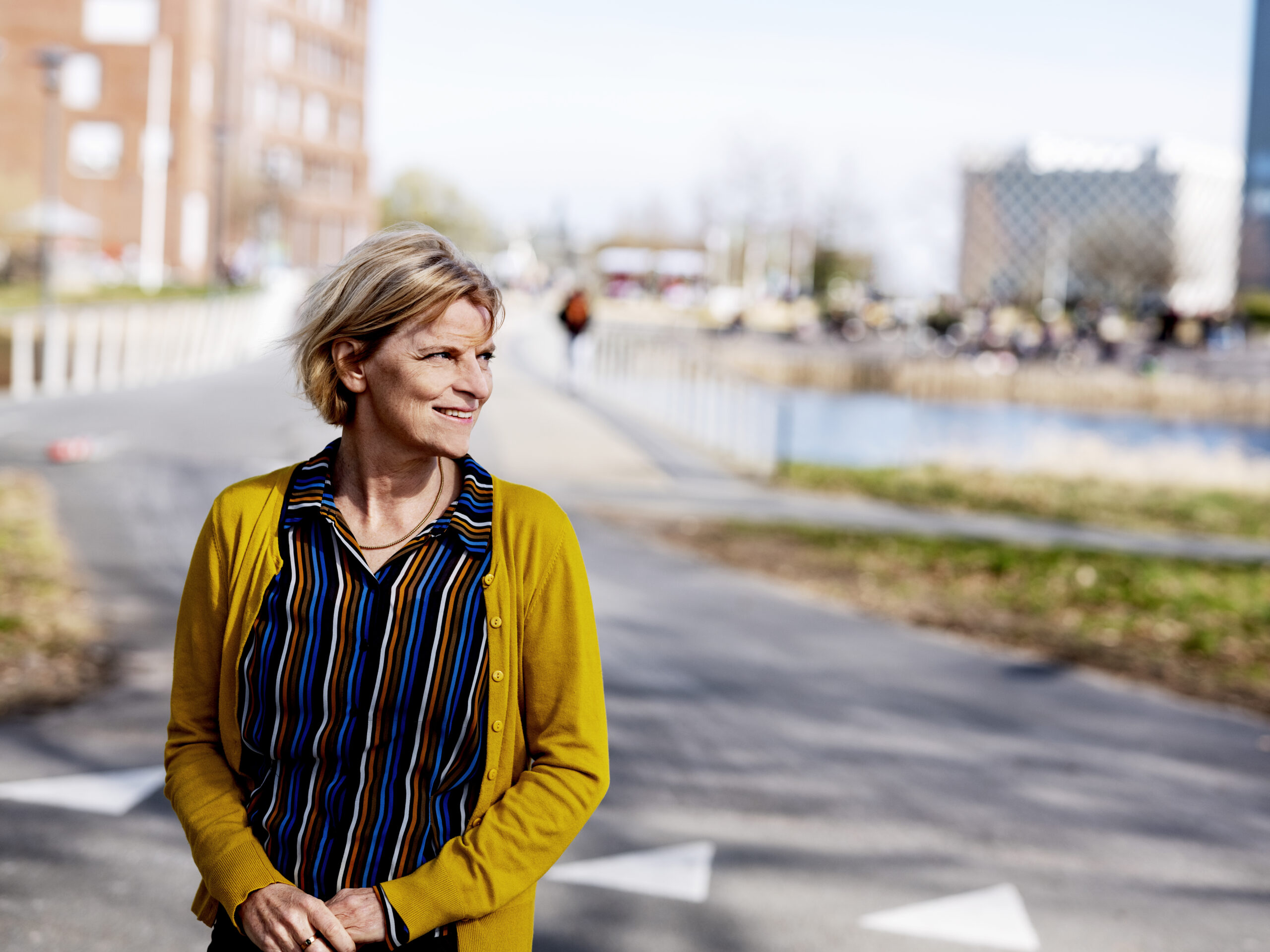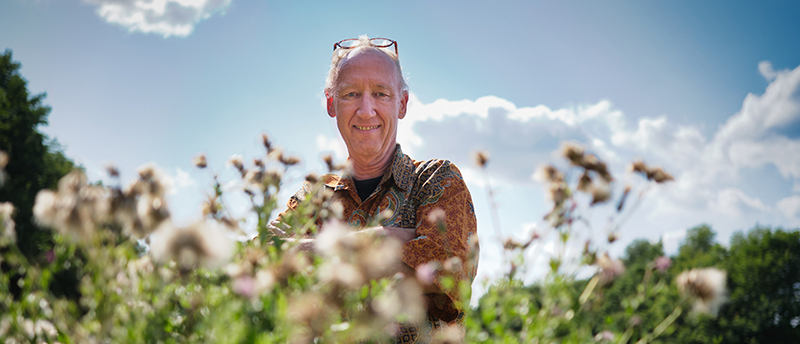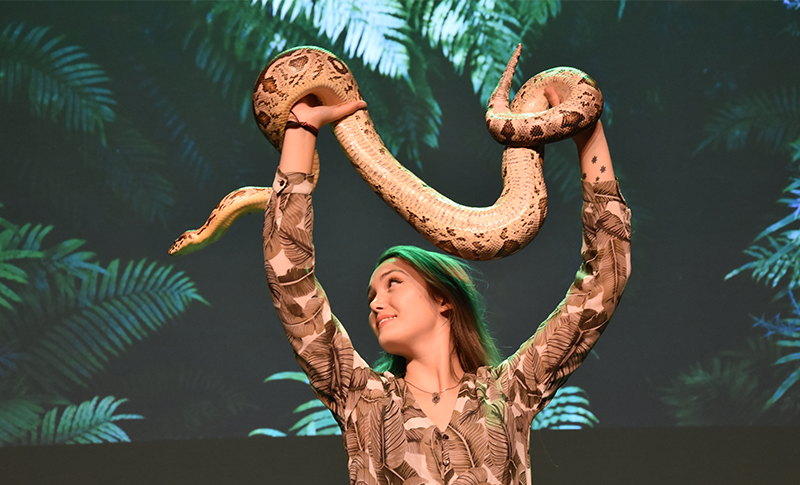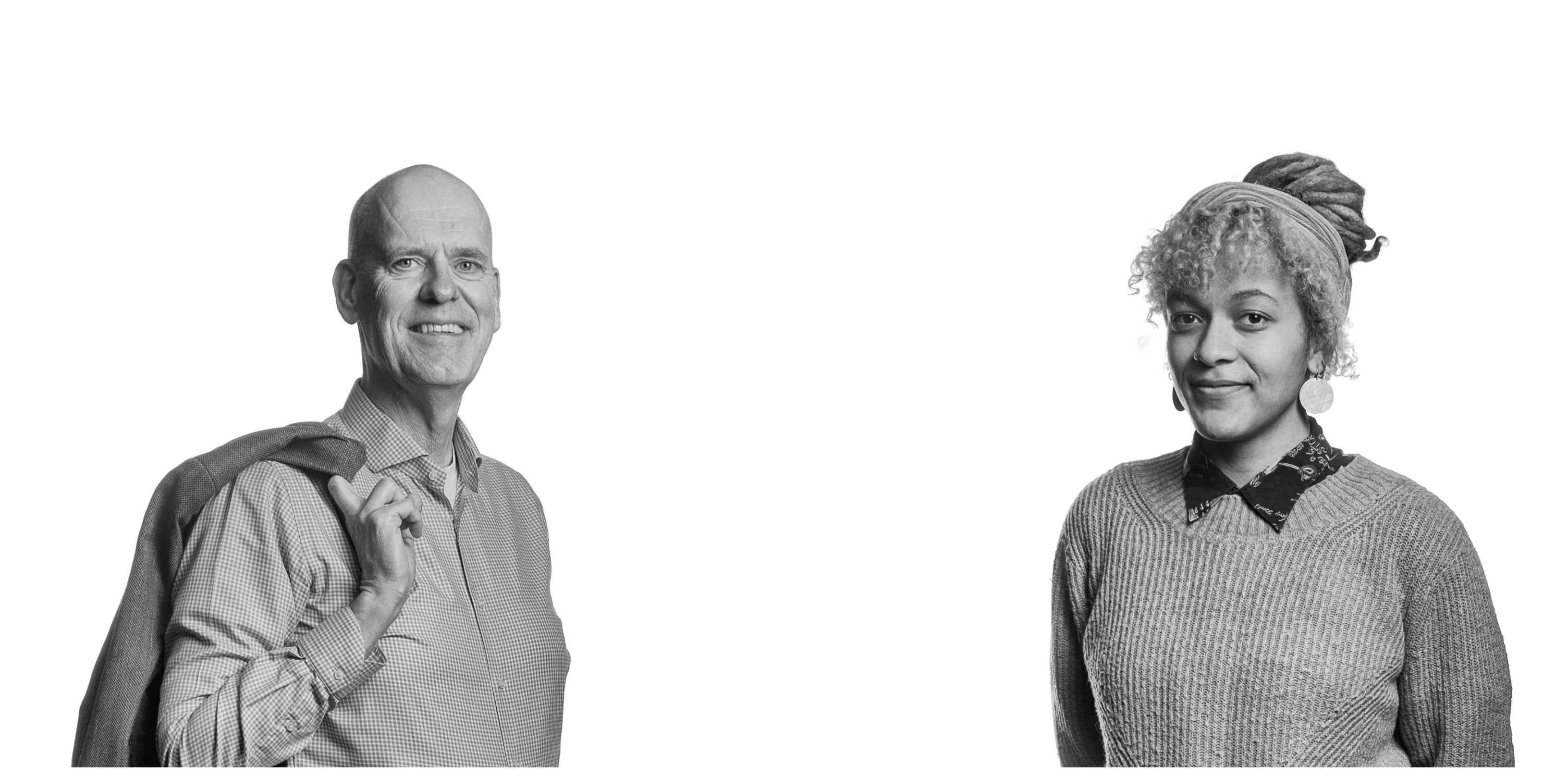The successor to WUR president Louise Fresco has been announced: Sjoukje Heimovaara, the current director of the Agrotechnology & Food Sciences Group (AFSG). So the choice fell on an internal candidate. Resource met her to talk about issues such as the climate, the business world, and the institution’s future course.
As usual, the grapevine has occasionally buzzed with names of possible new WUR presidents. But not – at least, to our knowledge, this one: Sjoukje Heimovaara. With this alumna, WUR says it has picked someone with ‘a clear vision, an open mind and a capacity to connect people.’ Heimovaara will start her new job on 1 July. She won’t discuss all the various dossiers until then. But we do get to meet her in Impulse, the prospective new president who is known as a people person, but also as direct, open and rational.’
She kicks off by saying that it is very clear that WUR could take even more responsibility than it does for making the world more sustainable. ‘When you look at what we’ve got to do on the planet: make food systems sustainable, organize things sustainably nationally and internationally, improve the climate. These are major themes and WUR is in a unique position, which we can occupy with even more depth and breadth. I think we must make ourselves heard louder and clearer – within our mandate, of course. Because we are a research and educational institution. We offer facts and a direction to go in, and thereby possible solutions.’
So if you really want to be effective, you have to take a stand?
‘On some subjects, yes. If you ask me whether is climate change is a problem, that’s not up for discussion. But more often, it is better not to take a position. I mean, we have the opportunity to offer options and guidelines, within our areas of expertise. Take the project called “A natural future for the Netherlands in 2120,” in which ecologists and landscape architects from Wageningen have made a map of the Netherlands in 2120, envisaging a future in which nature comes first. We are not saying: this is the only way to do things, but that these are possible directions to reflect on. It’s a way to get politicians thinking. We must do all we can to speed things up, but screaming and shouting won’t help.’
That is not your style?
‘No, I prefer to take a bit more time to think things over and then make sure the right information reaches the right people. And I believe in dialogue about our dossiers with the general public. I think it is our task – particularly that of the university – to share knowledge. Of course, we educate students, which is an effective way of sharing knowledge, but we also participate in debates. This is already happening on an almost daily basis through Wageningen researchers in the media. As WUR, we can make a difference and that’s what I want to support; working with everyone at WUR on societal issues such as food security and safety, the restoration of biodiversity, urbanization, climate change and adaptation, and making agriculture more sustainable.’
Are you an idealist?
‘I have become more so over the years, almost more activist. But I’m not taking up the new post for my own sake; that’s not what’s important to me. We all work together: the entire Board, the Science Groups at the University, and the research institutes. One Wageningen: that is WUR’s great strength. One of my priorities is to ensure that we are an attractive employer and educational institution. Are staff and students proud of our institution? What is our image at present? I think we could present our green identity even more forcefully. We are too modest. WUR is the most high-profile education and research institute in the Netherlands. I want to keep it that way. Our people need autonomy, they come here for research and education, and we must make sure that they can spend as much of their time as possible on those things.’
How do you view collaboration with the business community?
‘It is essential that we cherish and protect our independence at all times. But if we as WUR want to maximize our impact for the world, we need to collaborate with the business community as well. People tend to think in black and white terms on this matter. We should give thought to who we want to collaborate with in pursuit of our mission. Sometimes it will be Unilever, sometimes the government, and sometimes an NGO. Of course there are dilemmas and it is important for us to be transparent about those: sharing the considerations, so that everyone can see then and ask questions about them.’
Student days in Wageningen
The Wageningen alumna has fond memories of her student days. ‘A fantastic period. As a student town, Wageningen is on a manageable scale and there is a nice community where you don’t easily get lost. I was a member of Ceres student society – I lived in the student house called De Erwt – and I rowed with Argo for a year. I still know nearly all of the club song by heart.’
Daughters and Finland
Sjoukje Heimovaara (1965) was born in the Netherlands, but has had a Finnish surname since she married a Delft professor from that country. They have three daughters: the eldest is working on a PhD in medicine, the middle one will graduate in civil engineering on 6 April, and the third is at the rotations stage of her medical training. Lately, Heimovaara has been walking the Pieterpad long-distance footpath, and she likes rowing. She enjoys the moments she gets with her daughters and family. And of course she and her husband can sometimes be found in Finland, where they have a little house near the Russian border.
CV
Heimovaara studied Plant Breeding at Wageningen and obtained her PhD at Leiden University. She then worked at TNO for 14 years and at the plant-breeding company Royal Van Zanten for 17 years, most of them as R&D (Research & Development) director with international responsibilities. Heimovaara knows the plant-breeding and research world like the back of her hand and for the last two years she has been getting to know the food world as director at AFSG. ‘And an ancillary position I set great store by is on the AWTI, the advisory council that advises the government and parliament on science, technology and innovation.’

 Photo: Duncan de Fey
Photo: Duncan de Fey 

